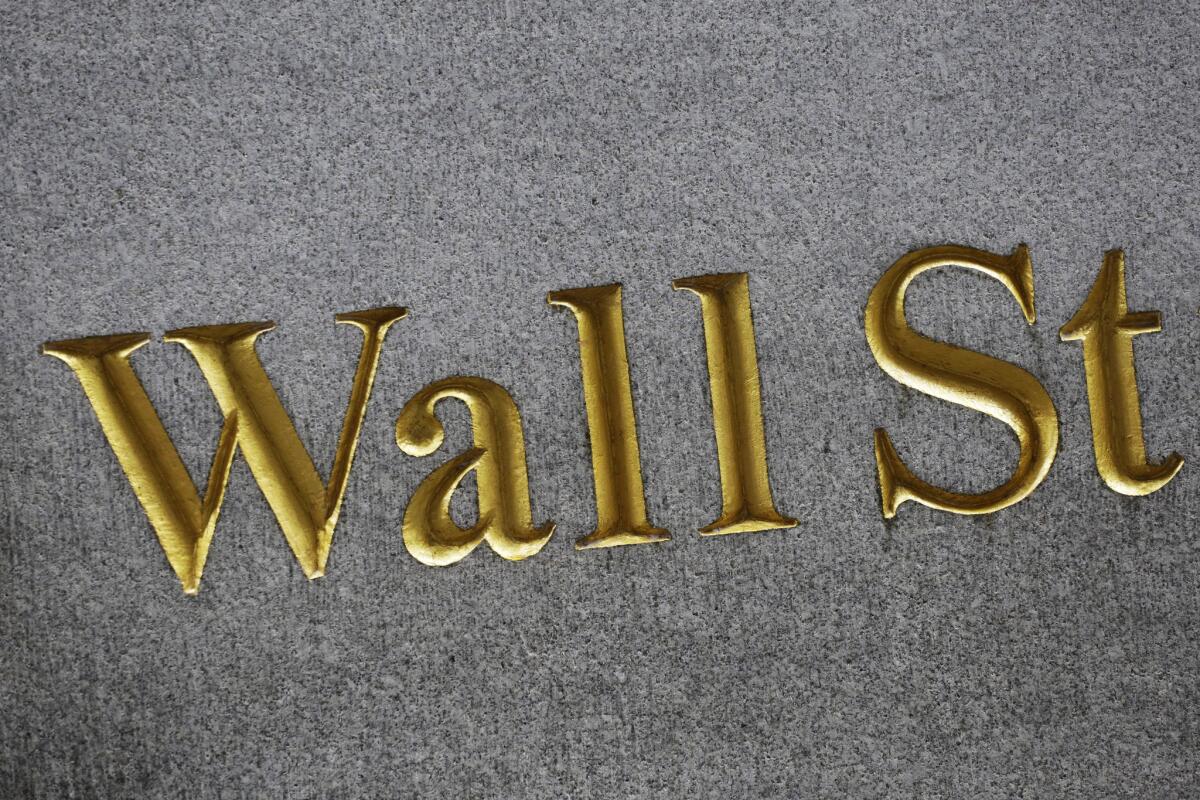Stocks erase a loss as worries over China tensions fizzle

- Share via
Stocks closed out a solid week on Wall Street on Friday with a late-afternoon rebound after worries that President Trump would reignite a costly trade war with China faded.
The benchmark S&P 500 index rose 0.5%, recovering from a 1% slide, after Trump outlined several actions in response to a move by China to exert more control over Hong Kong but steered clear of upending a trade pact struck with Beijing earlier this year. The S&P 500 ended the month 4.5% higher, its second monthly gain in a row.
The world’s two largest economies agreed to a Phase 1 trade deal in January after more than a year of talks and billions of dollars in tariffs imposed on each other’s imports. Worries that the Trump administration would pull out of the deal with the world’s second-largest economy weighed on the market for much of the day, until the president’s mid-afternoon statement.
Technology and healthcare stocks accounted for much of the market’s gains. That helped offset losses in banks, industrial companies and elsewhere. Bond yields fell and gold prices rose, signs that investors remain cautious. Oil recovered from an early slide.
All told, the S&P 500 rose 14.58 points to 3,044.31. The index ended the week with a 3% gain. The Dow Jones industrial average fell 17.53 points, or 0.1%, to 25,383.11. The Nasdaq composite, which is heavily weighted with technology stocks, gained 120.88 points, or 1.3%, to 9,489.87. The Russell 2000 index of small-company stocks gave up 6.64 points, or 0.5%, to 1,394.04.
Stocks have now recouped most of their losses after the initial economic fallout from the COVID-19 pandemic knocked the market into a breathtaking skid in February and March, though the S&P 500 is still down 10% from its all-time high in February.
The move by China to get a tighter grip on Hong Kong could undermine the city’s status as a major center for trade and finance. Hong Kong’s Hang Seng index finished 0.7% lower Friday.
Washington and Beijing have been trading harsh rhetoric recently on everything from Hong Kong to the response to the coronavirus outbreak. That stoked worries that the renewed tensions could lead to another punishing round of escalating tariffs between the two countries, which would only further damage a global economy punished by a severe recession caused by the pandemic.
The U.S. stock market plunged 34% from late February through late March but has rebounded quickly since then after the Federal Reserve and Congress pledged unprecedented amounts of aid for the economy. Recently, investors have favored stocks that would benefit the most from a reopening economy.
Governments around the country and around the world are slowly lifting restrictions meant to corral the outbreak. That has many investors hoping the worst of the recession has already passed, or will soon. However, concerns remain that the relaxing of stay-at-home mandates and the reopening of businesses could lead to another surge in infections, potentially extending how long it will take for the economy to recover.
The yield on the 10-year Treasury, a benchmark for interest rates on many consumer loans including mortgages, fell to 0.65% from 0.70% late Thursday. Lower yields mean investors are cautious about the prospects for economic growth and healthy levels of inflation.
Oil prices rose. Benchmark U.S. crude oil for July delivery rose $1.78 to settle at $35.49 a barrel. Brent crude oil for July delivery rose 4 cents to $35.33 a barrel.
Stock indexes in Europe closed broadly lower after a mixed finish in Asian markets.
More to Read
Inside the business of entertainment
The Wide Shot brings you news, analysis and insights on everything from streaming wars to production — and what it all means for the future.
You may occasionally receive promotional content from the Los Angeles Times.










